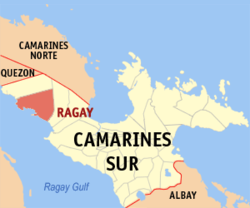Philippine News
CamSur-based farmers’ cooperative now plays role in global food security
BULA, Camarines Sur -– An organized group of Bicoloano farmers is showing the whole world that beneficiaries of the Philippine government’s agrarian reform program can also be global food security key players.
The Pecuaria Development Cooperative, Inc. (PDCI), a formal grouping of farmers here who are beneficiaries of the Comprehensive Agrarian Reform Program (CARP), started to play this role with its contribution to the latest shipment of black rice to China arranged by the Department of Agriculture (DA).
The total volume of that shipment of the rare and expensive rice variety, which left North Harbor in Manila last June 5, was 25 metric tons (MTs) — four MTs of which was produced by PDCI and the rest by Mindoro Allium Growers Multi-Purpose Cooperative of Occidental Mindoro and Black Rice Farmers of Quezon province.
The shipment also included 77 MTs of aromatic white rice produced by Nueva Ecija-based Magtutumana ng Sta. Rosa Multi-Purpose Cooperative and the Firmus Cooperative of Koronadal City in South Cotabato.
The rice shipments were consigned to Heze Tianlong Fruits and Vegetables Co. Ltd. in Shangdong, China, which purchased the agricultural product at the freight on board (FOB) price of US,850 per MT, according to Abelardo Bragas, DA’s regional executive director for Bicol based in Pili, Camarines Sur.
All these groups that produced the latest special rice varieties export are recipients of the government’s land transfer program under the CARP, whose implementation was started by the administration of the late President Corazon C.
Aquino way back in the early 1990s, he said.
In the case of the PDCI, Bragas said, his agency guaranteed its exportation through the issuance of Certificates of Compliance with Good Agricultural Practices (GAP).
The DA, through its Agribusiness Marketing Assistance Division in the region, also linked the cooperative to Vegetable Importers, Exporters and Vendors Association (VIEVA), a GAP-compliant exporter that negotiated the June 5 shipment.
The PDCI, which is the exclusive source of black rice in Bicol, is so far the only organic rice producer in Bicol certified by the Organic Certification Center of the Philippines (OCCP).
“We decided to focus on black rice because of its high market demand both in the domestic and international markets. It also commands a good price—P125 per kilo in the local market — that is very profitable for us,” Ludem Molina, the cooperative’s board chair, told PNA on Friday.
Black rice, also known as purple rice or forbidden rice, is a kind of sticky rice that is high in nutritional value and contains 18 amino acid, iron, zinc, copper, carotene, anthocyanin, and several important vitamins, Molina said, citing scientific studies.
According to studies, he said, eating black rice has been linked to marked decreases in risk of heart disease and cancer while high blood pressure, circulation and overall blood health also seems to be maintained well by those who add the same grain variety to their diet.
Because this special type of rice is considered to be anti-inflammatory and a great source of antioxidants, the same studies suggest that it may be useful in avoiding long-term problems like Alzheimer disease and diabetes, according to Molina.
The grain has a similar amount of fiber to brown rice and like brown rice, has a mild, nutty taste.
In China, black rice is claimed to be good for kidney, stomach and liver but these claims have not been independently verified or established.
A new study has found that black rice has higher levels of antioxidants, referred to as anthocyanins, than do blueberries.
The study, presented at the 240th National Meeting of the American Chemical Society (ACS), showed that one spoonful of black rice brand contains more anthocyanin antioxidants than a spoonful of blueberries; better yet, black rice offers more fiber and vitamin E antioxidants, but less sugar.
Anthocyanin antioxidants have been linked with a lower risk of heart disease, cancer and other western diseases that are apparently associated with low intake of vegetables and high intake of sugar and meats in the West, according to previous studies.
Molina narrated that the PDCI was born as an agrarian reform cooperative in 1991 and several years later has made a name of its own and carved a niche in its own sector as a successful farmers’ organization strongly advocating sustainable and ecologically-sound agriculture and demonstrating that farming could be a profitable enterprise.
“We were able to build our capabilities and of members’ families towards a productive and sustainable community through a principled partnership, effective organization and efficient farm resources management,” he said.
The cooperative, Molina said, has a total of 426 members cultivating a total of 817.33 hectares of hilly, rolling and flat lands–over 733 hectares of it are utilized for the production of various crops such as rice, sugarcane, vegetables, root crops, fruit trees, agro-forest trees and bamboos.
It has more than 120 hectares of irrigated area planted to organic rice and an additional 10-hectare un-irrigated area devoted to upland rice.
Some 543 hectares are planted to sugarcane; 30 hectares to bamboos; 20 hectares to fruit trees and agro-forest trees; five hectares to vegetables and another five hectares to root crops.
The cooperative’s major economic undertaking is the production, trading and marketing of organic rice which includes, organic healthy rice, white, brown, pink, polish red, unpolished red, violet rice, black rice, aromatic and blended rice.
“Our recent entry to the export market inspires us to work on more production of black rice without abandoning the other varieties as we want to contribute more to global food security efforts and at the same time help in the generation of foreign currency for the country’s dollar reserves,” Molina added.






















